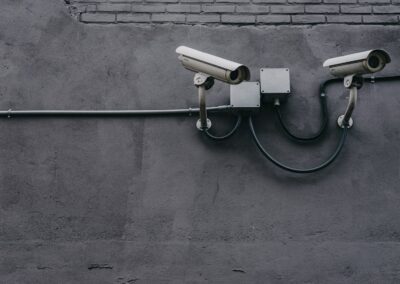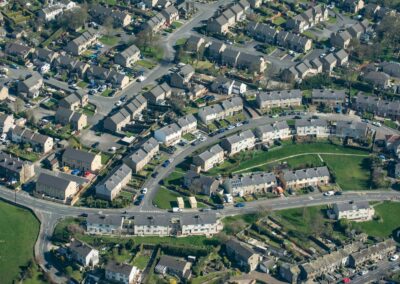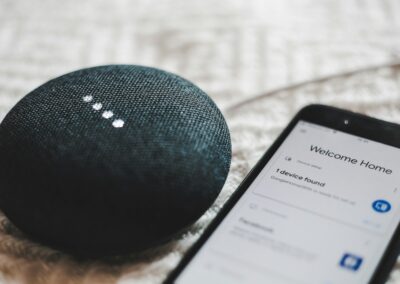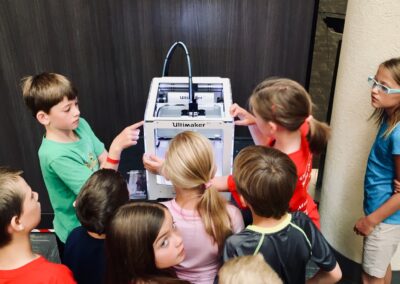Understanding the Privacy and Security Landscape in Smart Homes
Introduction to Privacy and Security Concerns in AI and IoT Smart Homes
The rise of AI and IoT in smart homes has revolutionized modern living, bringing unprecedented convenience and efficiency. However, with these advancements come significant privacy and security concerns that must be addressed to ensure the safety and trust of users. In regions like Saudi Arabia and the UAE, where cities such as Riyadh and Dubai are at the forefront of technological innovation, addressing these concerns is crucial for the continued adoption and success of smart home technologies.
Smart homes equipped with AI and IoT devices collect vast amounts of data to optimize and personalize the living experience. This data includes everything from daily routines and preferences to sensitive information such as health and financial data. Without proper safeguards, this data can be vulnerable to breaches, leading to privacy violations and security risks. As smart homes become more integrated into our daily lives, ensuring robust privacy and security measures is essential.
In Riyadh, the implementation of smart home technologies is part of a broader strategy to enhance urban living through innovation. Similarly, Dubai’s focus on becoming a global leader in smart city initiatives includes extensive use of AI and IoT in residential settings. Both cities recognize the importance of addressing privacy and security concerns to build trust and promote the widespread adoption of these technologies.
Key Privacy Concerns in AI and IoT Smart Homes
One of the primary privacy concerns in AI and IoT smart homes is the potential for unauthorized access to personal data. Smart devices continuously collect and transmit data, often to cloud services for processing and storage. If these communications are not adequately secured, hackers can intercept the data, leading to potential misuse or theft of sensitive information. For instance, unencrypted data streams from smart cameras or voice assistants can expose users to significant privacy risks.
Another critical issue is data sharing and third-party access. Many smart home devices share data with third-party service providers to enhance functionality or integrate with other services. Without transparent data practices and user consent mechanisms, users may unknowingly expose their data to third parties, increasing the risk of privacy breaches. In Riyadh and Dubai, regulatory frameworks are being developed to ensure that data sharing practices are transparent and that user consent is obtained for any data transactions involving third parties.
Moreover, the sheer volume of data collected by smart home devices poses a significant challenge for privacy. Continuous data collection can lead to the creation of detailed profiles of users, which, if accessed by unauthorized parties, can result in targeted attacks or manipulation. Ensuring that data collection practices are limited to what is necessary and that data is anonymized wherever possible can help mitigate these risks.
Addressing Privacy Concerns through Regulation and Technology
Addressing privacy concerns in AI and IoT smart homes requires a combination of regulatory measures and technological solutions. In Saudi Arabia, the government is implementing data protection regulations that mandate strict privacy controls and user consent mechanisms for smart home devices. These regulations are designed to ensure that users have control over their data and that companies are held accountable for protecting it.
Technological solutions also play a crucial role in enhancing privacy. End-to-end encryption, for instance, ensures that data transmitted between smart devices and cloud services is secure and inaccessible to unauthorized parties. Additionally, incorporating privacy by design principles in the development of smart home devices can ensure that privacy considerations are integrated from the outset, rather than as an afterthought.
In Dubai, initiatives such as the Dubai Data Initiative aim to create a secure and transparent data ecosystem that fosters trust among residents. By establishing clear guidelines for data usage and sharing, and by leveraging advanced encryption and anonymization technologies, Dubai is setting a benchmark for privacy in smart home implementations. These efforts are crucial for maintaining user trust and encouraging the adoption of smart home technologies.
Enhancing Security in Smart Homes
Key Security Concerns in AI and IoT Smart Homes
The integration of AI and IoT in smart homes also brings several security concerns that need to be addressed. One of the most significant threats is the potential for cyberattacks. Hackers can exploit vulnerabilities in smart home devices to gain unauthorized access, disrupt operations, or launch attacks on other connected systems. This can result in significant damage, both in terms of financial loss and personal safety.
Another major security concern is the risk of device manipulation. Smart home devices control critical functions such as security systems, lighting, and HVAC systems. If these devices are compromised, hackers can manipulate them to cause physical harm or create unsafe conditions. For instance, gaining control over a smart thermostat could lead to extreme temperature fluctuations, causing discomfort or even health risks for residents.
Additionally, the lack of standardized security protocols across different smart home devices poses a significant challenge. Many devices come from various manufacturers, each with its own security measures. This lack of uniformity can create gaps in the overall security of a smart home ecosystem, making it easier for attackers to exploit weaknesses. Establishing industry-wide security standards is essential for ensuring comprehensive protection.
Strategies for Enhancing Security in Smart Homes
Enhancing security in AI and IoT smart homes requires a multi-layered approach that combines robust security practices, advanced technologies, and continuous monitoring. In Saudi Arabia, efforts are being made to develop and enforce stringent security standards for smart home devices. These standards include requirements for secure coding practices, regular security updates, and vulnerability assessments.
One effective strategy for enhancing security is the use of blockchain technology. Blockchain can provide a decentralized and immutable ledger for recording device interactions and transactions, making it difficult for attackers to tamper with data. By ensuring transparency and integrity, blockchain can significantly enhance the security of smart home ecosystems.
Another critical component of smart home security is the implementation of AI-driven threat detection systems. These systems can continuously monitor network traffic and device behavior to identify and respond to potential security threats in real-time. By leveraging machine learning algorithms, these systems can detect anomalies and initiate automated responses to mitigate risks, ensuring that smart homes remain secure against evolving cyber threats.
Building a Secure and Trustworthy Smart Home Environment
Building a secure and trustworthy smart home environment requires collaboration between government authorities, technology providers, and users. In Dubai, initiatives such as the Dubai Cybersecurity Strategy aim to create a robust cybersecurity framework that protects smart home environments. This strategy includes public-private partnerships to enhance cybersecurity capabilities and promote the adoption of best practices.
Users also play a crucial role in maintaining the security of their smart homes. Educating residents about the importance of cybersecurity and providing guidelines for securing their devices can significantly reduce the risk of cyberattacks. Simple measures such as regularly updating device firmware, using strong passwords, and enabling multi-factor authentication can enhance the security of smart home systems.
Finally, continuous innovation and research are essential for staying ahead of emerging security threats. By investing in cybersecurity research and development, cities like Riyadh and Dubai can develop new technologies and strategies to protect smart home environments. This proactive approach ensures that smart home ecosystems remain resilient and secure, fostering trust and promoting widespread adoption of these technologies.
Conclusion
Addressing privacy and security concerns in AI and IoT smart homes is essential for ensuring the safety and trust of users. In regions like Riyadh and Dubai, the integration of advanced technologies, regulatory frameworks, and community engagement is helping to create secure and trustworthy smart home environments. By adopting best practices, leveraging cutting-edge technologies, and fostering collaboration, these cities are setting new standards for privacy and security in smart homes. The continued focus on innovation and resilience will be crucial for maintaining user trust and promoting the widespread adoption of smart home technologies.
#PrivacyConcerns #SecurityConcerns #AI #IoT #SmartHomes #DataProtection #Cybersecurity #RiyadhInnovation #DubaiTechnology #ModernTechnology























